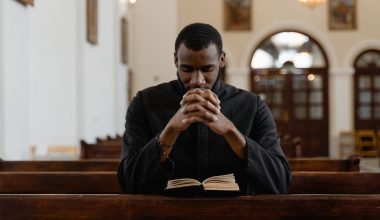Welcome to Lesson 44, where we embark on a fascinating exploration of a pivotal moment in the Bible – the institution of the Abrahamic Covenant.
In the Book of Genesis, this divine covenant marks a significant turning point in the biblical narrative, setting the stage for the future of God’s chosen people.
Through the life of Abraham, a man of unwavering faith, we witness the establishment of a covenant that promises blessings, descendants, and land for his descendants.
This lesson 44: Abrahamic Covenant instituted will delve into the historical context, the divine promises, and the enduring significance of the Abrahamic Covenant, shedding light on its profound impact not only on the biblical narrative but also on the history of faith and the world at large.
Lesson 44: Abrahamic Covenant Instituted
THE TIME OF COVENANT (Genesis 15:1; 2 Peter 3:9).
SUPPLICATION THAT OCCASIONS GODLY COVENANT
PROMISED BLESSING OF THE COVENANT (Genesis) 15:4,5; 13:14-17; 17:1-14; 22:15-18; 2 Samuel 7:11- 16).
ASSURANCE OF INHERITANCE GIVEN TO ABRAM
GOD’S PURPOSE CONCERNING THE COVENANT SEED (Genesis 15:12-16; Exodus 1:11; 12:40,41).
RATIFICATION OF THE COVENANT (Genesis 15:17- 21). The sign that Abram requested was given.
Personal Questions
Conclusion
In conclusion, the institution of the Abrahamic Covenant stands as a cornerstone in the biblical story, representing the timeless promises of God and the enduring legacy of faith.
Through Abraham’s unwavering trust and obedience, we see a profound example of faith in action, and through the covenant itself, we glimpse the divine commitment to guide and protect God’s chosen people.
As we have explored the historical and theological dimensions of this covenant in Lesson 44, it is evident that its impact transcends the pages of scripture. It has influenced the beliefs and convictions of countless individuals and played a significant role in shaping the course of history.








